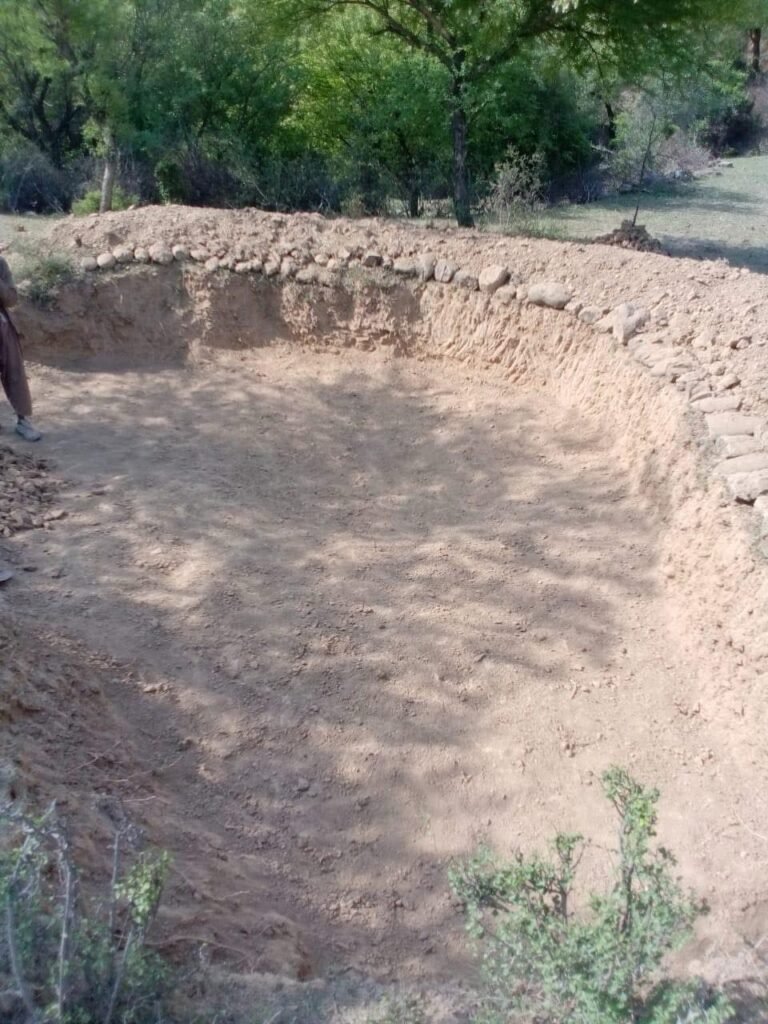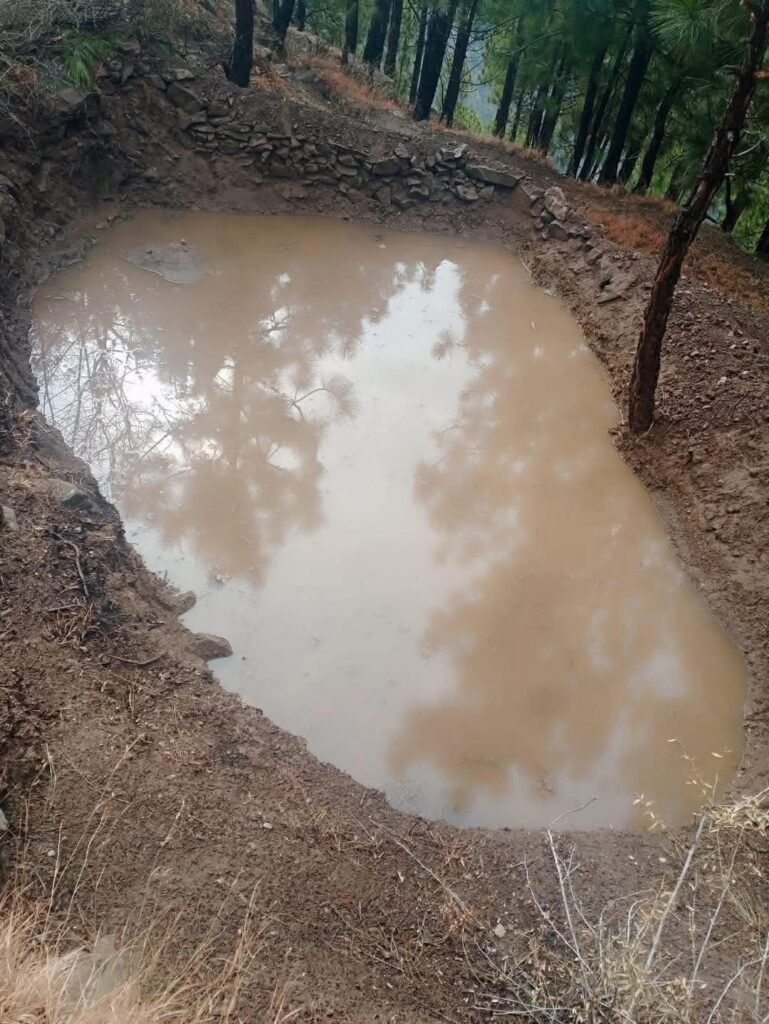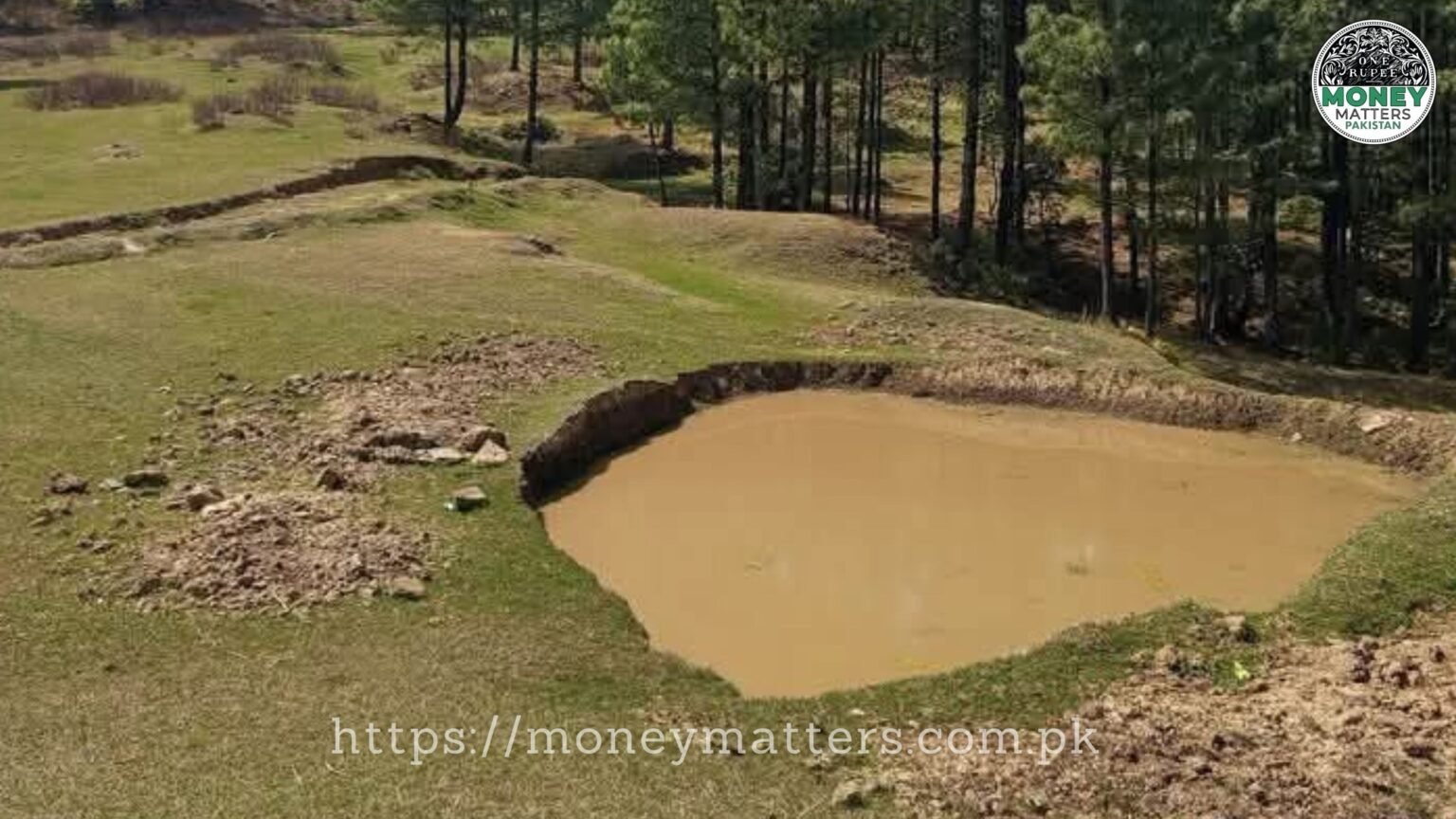Facing persistent water scarcity, residents of Azad Jammu and Kashmir are independently constructing thousands of rainwater harvesting ponds, showcasing a grassroots approach to water security.
Key Takeaways:
i) Communities across Azad Jammu and Kashmir are actively involved in building thousands of rainwater harvesting ponds to combat water shortages.
ii) A local teacher is spearheading this movement through a social media campaign, aiming for 10,000 ponds and providing modest financial incentives with specific construction guidelines.
iii) This community-led initiative offers a potential low-cost and scalable model for addressing Pakistan’s wider water crisis and promoting climate resilience.
Islamabad, Pakistan – April 20, 2025 – In a remarkable display of community resilience, the people of Azad Jammu and Kashmir (AJK) are actively addressing the pressing issue of water scarcity by constructing thousands of rainwater harvesting ponds. This self-initiated movement, spanning from the hilly terrains of Dhirkot to remote villages, highlights a determined effort to capture monsoon rains and secure a vital resource for the future.
What began as individual endeavors has evolved into a widespread campaign, largely fueled by social media engagement. At the forefront of this “quiet revolution” are people like Usman, a dedicated local teacher who has become a driving force. Identifying himself as a “One-Man Army” in the fight against water scarcity, Usman has set an ambitious goal of building 10,000 water-absorbing ponds throughout AJK. His active Facebook page, Teacher Usman, serves as a real-time documentation of the progress, showcasing the 150 ponds already completed and inspiring further community involvement.
To encourage widespread participation, Usman’s team provides a financial incentive of PKR 6,000 for each successfully constructed pond.
Speaking about the initiative, Usman emphasized the critical importance of water in the mountainous region. “In these mountains, water is life,” he stated. “If we don’t save it, who will?”
To encourage widespread participation, Usman’s team provides a financial incentive of PKR 6,000 for each successfully constructed pond. However, this incentive comes with clearly defined criteria to ensure effectiveness and sustainability. The guidelines stipulate a minimum pond size of 15x6x2 feet, prohibit concrete lining to facilitate groundwater recharge, mandate location within natural runoff zones, and require safety fencing in areas near settlements.

“We meticulously verify each pond through WhatsApp video submissions before disbursing funds,” Usman explained, underscoring the transparency and accountability of the process.
The construction of these ponds is proving to be a significant intervention in AJK, a region where the mountainous landscape often presents challenges in accessing water. The benefits of this initiative are multifaceted, including the replenishment of vital aquifers in water-stressed areas, a reduction in flood risks by effectively capturing rainwater runoff, crucial support for local agriculture and livestock during dry periods, and the promotion of groundwater-dependent vegetation, which aids in combating deforestation.

This grassroots movement in AJK echoes successful rainwater harvesting efforts observed in other regions globally. The city of Chennai in India, for instance, implemented mandatory rainwater harvesting after experiencing severe droughts. Similarly, communities in Africa’s Sahel region have utilized small ponds to cultivate and sustain “water-pocket forests” in arid environments.
While the benefits of these ponds are evident, experts have also cautioned about potential challenges. These include the risk of mosquito breeding in stagnant water, the possibility of soil erosion if construction is not carried out properly, and safety concerns for children and livestock near unfenced ponds. Usman’s team is proactively addressing these risks by advocating for natural pond linings, the construction of overflow channels, and active community monitoring.

Given the increasing water crisis in Pakistan exacerbated by climate change, the AJK initiative presents a potentially valuable model that is both low-cost and scalable. Environmental expert [Name – Information added from Internet search: Insert name of a Pakistani environmental expert if found] commented, “This isn’t just about AJK—it’s a blueprint for the entire country. If replicated effectively, such decentralized systems could significantly mitigate flood impacts and secure essential water resources for millions across Pakistan.”
As the monsoon season approaches AJK, the local communities stand prepared to not only face the rains but also to harness their potential, drop by drop, securing a more water-resilient future through their collective action.




